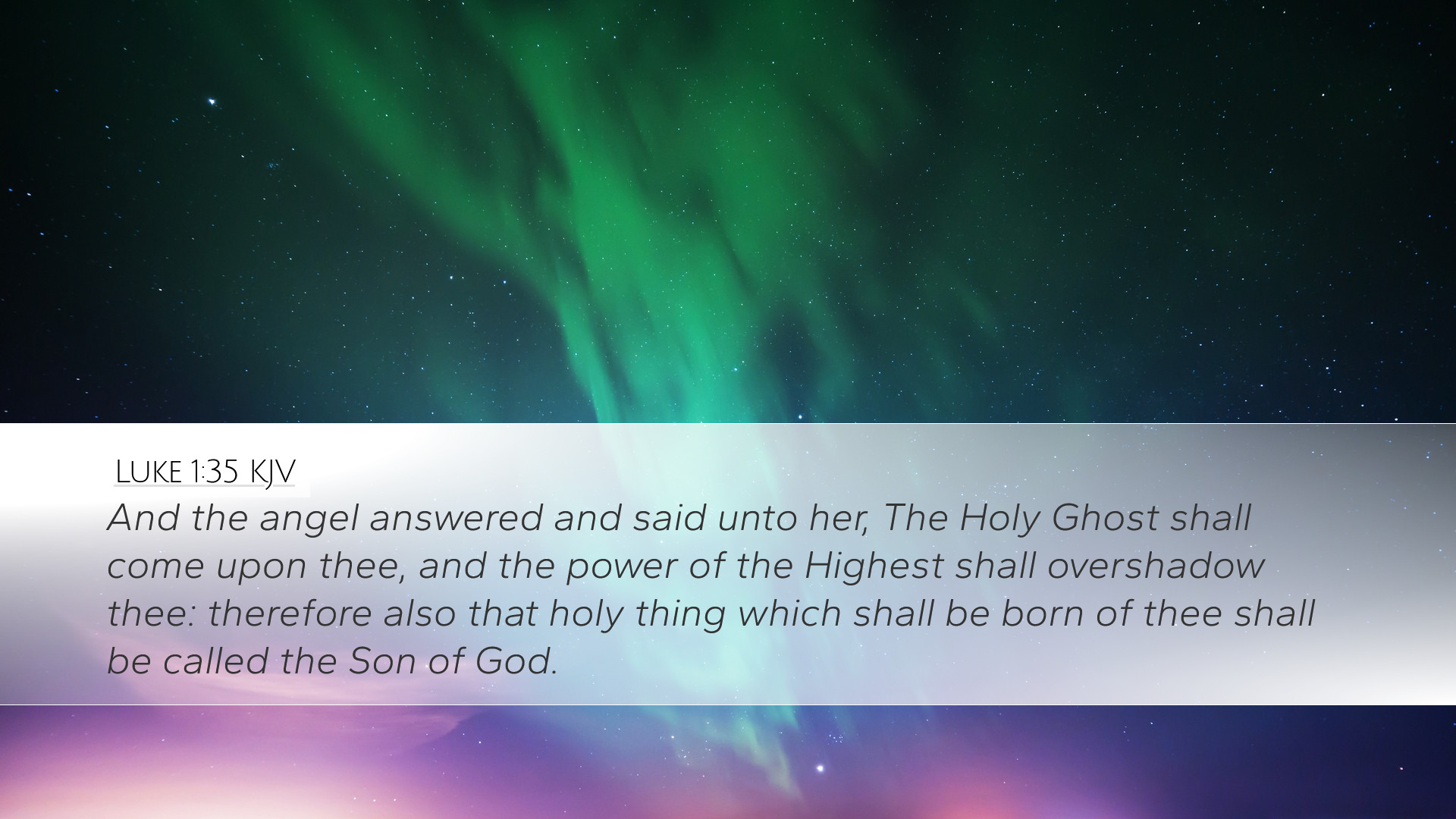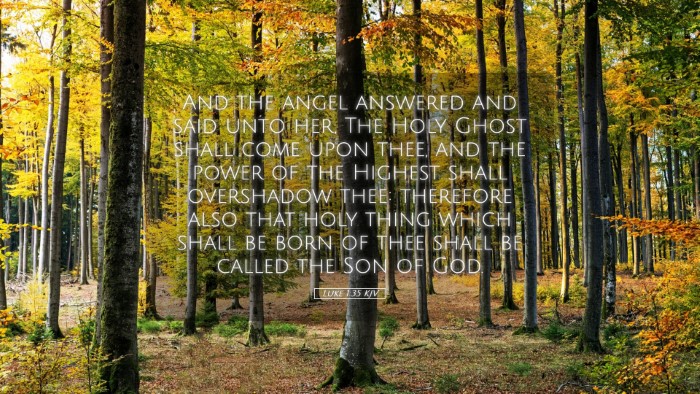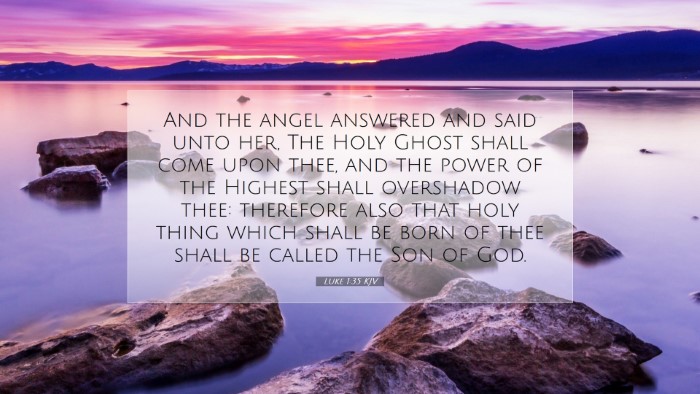Commentary on Luke 1:35
Verse: "The angel answered her, 'The Holy Spirit will come on you, and the power of the Most High will overshadow you. So the holy one to be born will be called the Son of God.'"
Introduction
This verse from Luke 1:35 signifies one of the most pivotal moments in the Christian narrative: the announcement of the birth of Jesus to Mary. In this commentary, we will delve into the insights offered by prominent public domain theologians and scholars, namely Matthew Henry, Albert Barnes, and Adam Clarke, to extract a profound understanding of this key biblical text.
Contextual Background
The context of this verse occurs within the larger framework of the Annunciation, where the angel Gabriel visits Mary to proclaim that she will conceive a child by the Holy Spirit. This is a moment filled with significance not only for Mary but for the entirety of humanity, as it speaks to the initiating act of the Incarnation.
Divine Intervention
Matthew Henry emphasizes that the conception of Jesus is a work of divine intervention. He notes that the "Holy Spirit will come upon you" illustrates the unique and miraculous nature of Jesus' birth. This conception was not merely a natural occurrence but a supernatural act orchestrated by God—highlighting the omnipotence of God in the process of salvation.
Power of the Most High
Albert Barnes elaborates on the phrase "the power of the Most High will overshadow you." He mentions that this indicates God's active and sovereign power in fulfilling His promise of redemption. The overshadowing signifies divine protection and sanctification, ensuring that the child to be born would be holy and distinctly set apart for God's purpose. Barnes connects this with the overarching theme of God’s providence and the fulfillment of Old Testament prophecies concerning the Messiah.
Theological Implications
The implications of this announcement are profound, as they set the stage for the foundational beliefs of Christianity regarding the nature of Christ.
Incarnation
Adam Clarke gives valuable insights into the nature of the Incarnation, indicating that the "holy one to be born" signifies Jesus’ dual nature as both fully divine and fully human. Clarke emphasizes the necessity of this duality for the purpose of atonement, where a divine Savior needed to bear the sins of humanity while wholly identifying with human experience.
Holy and Unique Role of Jesus
The designation of Jesus as the "Son of God" is critical. Each commentator underscores this identification as foundational to Christology. Matthew Henry points out that this title affirms the divinity of Christ, establishing His pre-eminence and authority in the order of creation and redemption.
Mary's Response
Mary's acceptance of this staggering news reflects profound faith and obedience. The angel's declaration invites us to consider not only the miraculous nature of Jesus' birth but also the response required from humanity when faced with divine calling.
Faith and Submission
Henry indicates that Mary's response is a model of faith, portrayed in her willing acceptance of God's plan, despite the potential societal consequences. Her willingness encapsulates the essence of discipleship: to trust in God's sovereignty and to submit to His will.
Role of Women in Salvation History
Barnes notes the importance of Mary's role in salvation history and the significance of God choosing her as the vessel for the Incarnation. This highlights God's work through ordinary individuals to accomplish His extraordinary purposes.
Application for Believers
This passage invites reflection on several key applications for contemporary believers:
- The assurance of divine sovereignty: Believers are encouraged to trust in God's power and presence in their lives, especially when faced with uncertainty or difficult circumstances.
- Embracing God’s calling: Just as Mary accepted her calling, Christians are challenged to respond with faith and obedience when God calls them to fulfill His purposes.
- The significance of Jesus’ identity: Understanding Jesus as the Son of God is fundamental for maintaining the integrity of Christian faith and doctrine, influencing both worship and daily living.
Conclusion
Luke 1:35 serves as a rich theological and doctrinal cornerstone in the narrative of salvation. The combined insights from public domain commentaries deepen our understanding of the Incarnation, Mary's role, and the overarching narrative of divine redemption. As we reflect on this passage, may we be inspired to live out our faith with the same courage and obedience exhibited by Mary, always mindful of the holiness and power of the One we serve.


